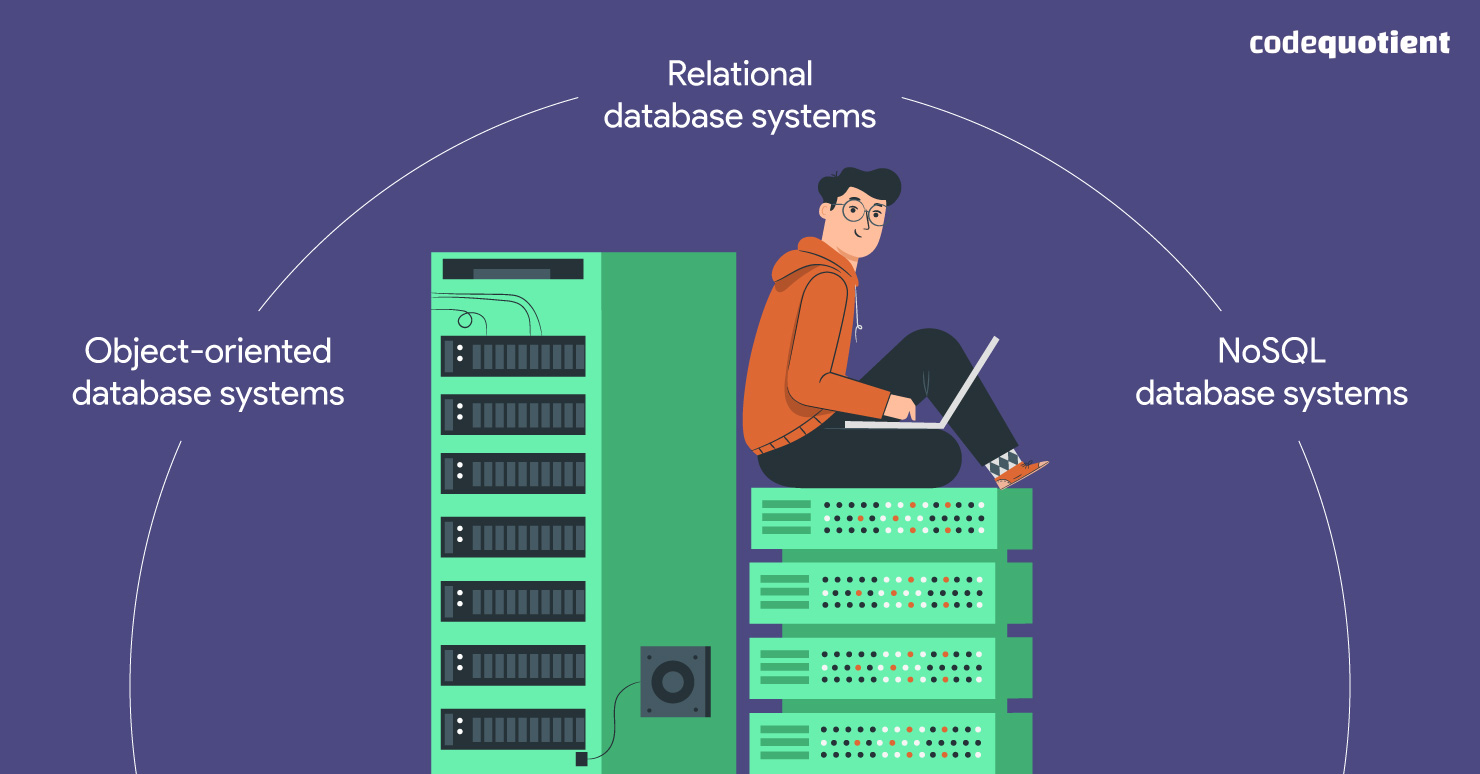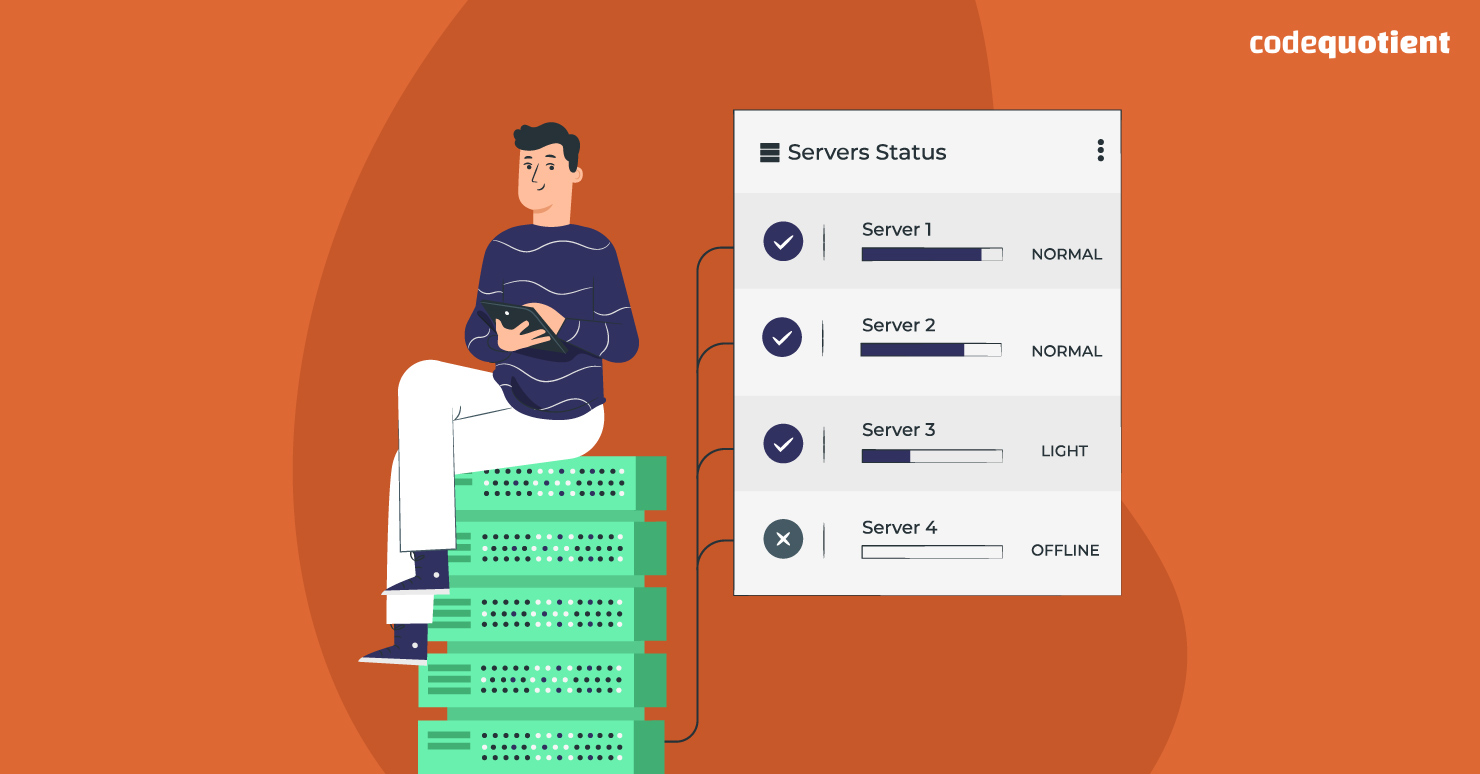Have you ever wondered how social media platforms like Facebook and Twitter manage enormous amounts of data daily? Or how can banks process millions of transactions in a matter of seconds?
It’s all possible due to the incredible power of database systems, and if you’re starting your career in IT, understanding the fundamentals of database systems is crucial.
In this article, we’ll take you through the basics of database systems and explain why they’re essential in today’s modern technology landscape.
So, buckle up and get ready to dive into the topic!
But First, What is a Database?
A database is an organised data collection that can be easily accessed, managed, and updated. It can store text, numbers, images, and multimedia information.
For example, a company may have a database that stores employee information, such as their names, addresses, and salaries. You can easily query this database to find specific information about an employee, such as their salary history or employment dates.
What Does a Database System Stand for?
A database system is a computer-based system designed to manage and organise large amounts of data. It consists of hardware and software components that work together to store, retrieve, and manage data in a structured and organised manner.
A database system typically includes a database management system (DBMS), a software application that enables users to create, manage, and access databases.
The DBMS provides a centralised and organised way to store and manage data, allowing multiple users to access and modify the data concurrently while maintaining data integrity and security.
In addition to the DBMS, a database system may include hardware components such as servers, storage devices, networking equipment, application software, and programming tools for creating and customising database applications.
Database systems are widely used in various industries and applications, such as e-commerce, finance, healthcare, and logistics, to manage and analyse large amounts of data and to support decision-making processes.
Types of Database Systems

There are three main types of database systems:
- Relational database systems: Popular databases use tables with rows and columns to store data, and relationships connect tables for data retrieval.
- NoSQL database systems: Non-relational databases use different data models to store unstructured and semi-structured data.
- Object-oriented database systems: These databases store complex data types like multimedia, geographical, and engineering data.
Characteristics of Database Systems
The database system has several characteristics that make them an essential tool for managing large amounts of data:
- Data Independence: Database systems provide data independence, allowing for easier maintenance, modification, and scalability.
- Centralised Control: A database system is managed centrally by a DBA, ensuring consistent, accurate, and secure data.
- Concurrent Access: Multiple users can access and modify data simultaneously without interference or conflicts.
- Data Integrity: Database systems enforce rules and constraints to ensure data accuracy, consistency, and validity.
- Security: Database systems provide mechanisms to protect against unauthorised access, manipulation, and data theft.
- Scalability: Database systems can handle large amounts of data and can be scaled vertically or horizontally to accommodate increased data volumes or traffic.
- Query Language: A database system provides a query language, such as SQL, to retrieve, update, and manipulate data.
Advantages of Database Systems
There are several benefits of using a database system:
- Improved data sharing and accessibility
- Better data security and control
- Increased data consistency and accuracy
- Better data integration and management
- Improved data backup and recovery
- Reduced data redundancy and inconsistency
Few Disadvantages of Database Systems
Some limitations and drawbacks of using a database system include the following:
- High initial cost and complexity
- Potential for data corruption and loss
- Require specialised skills and expertise to manage
- It can be slower than file-based systems for specific tasks
- Increased vulnerability to cyber-attacks
Why Should You Learn Database Systems?
The learning database system is essential for several reasons:
1. Data organisation and storage: Database systems organise and store data in a structured way.
2. Efficient data retrieval: Databases allow quick retrieval using efficient indexing and querying techniques.
3. Data analysis and reporting: Database systems enable data analysis and reporting for decision-making.
4. Integration with other systems: Learning database systems can provide a deeper understanding of software integration.
5. Career opportunities: Knowledge of database systems can lead to various career opportunities.
Designing and Creating a Database System
To design and create a database, several essential steps you should follow. By carefully following these steps, you can ensure that your database is well-structured, efficient, and capable of meeting your needs.
Designing and creating a database involves the following steps:
- Define the purpose of the database: Determine what data you want to store and how you want to retrieve it.
- Create a conceptual data model: Identify the entities and relationships in the database.
- Normalise the data: Normalise the data to eliminate redundancy and ensure data integrity.
- Define the database schema: Define the database’s tables, fields, and relationships.
- Create the database: Use a database system to create and populate it with data.
Wrapping Up
A database system is a software that manages and organises data, making it easy to store, retrieve, and manipulate vast amounts of information. It’s used in various applications, from social media to financial institutions.
By learning the fundamentals of database systems, you’ll better understand how data is organised and stored. You’ll also develop valuable skills that can lead to exciting career opportunities.
CodeQuotient is a comprehensive learning and career platform that offers a unique personalised internship program, SuperCoders Program, to help students develop critical skills and gain practical experience. In addition, this three-month-long program empowers students to create a professional portfolio and stand out in today’s highly competitive job market.
Apply today and take the first step towards a fulfilling career in coding with CodeQuotient!




